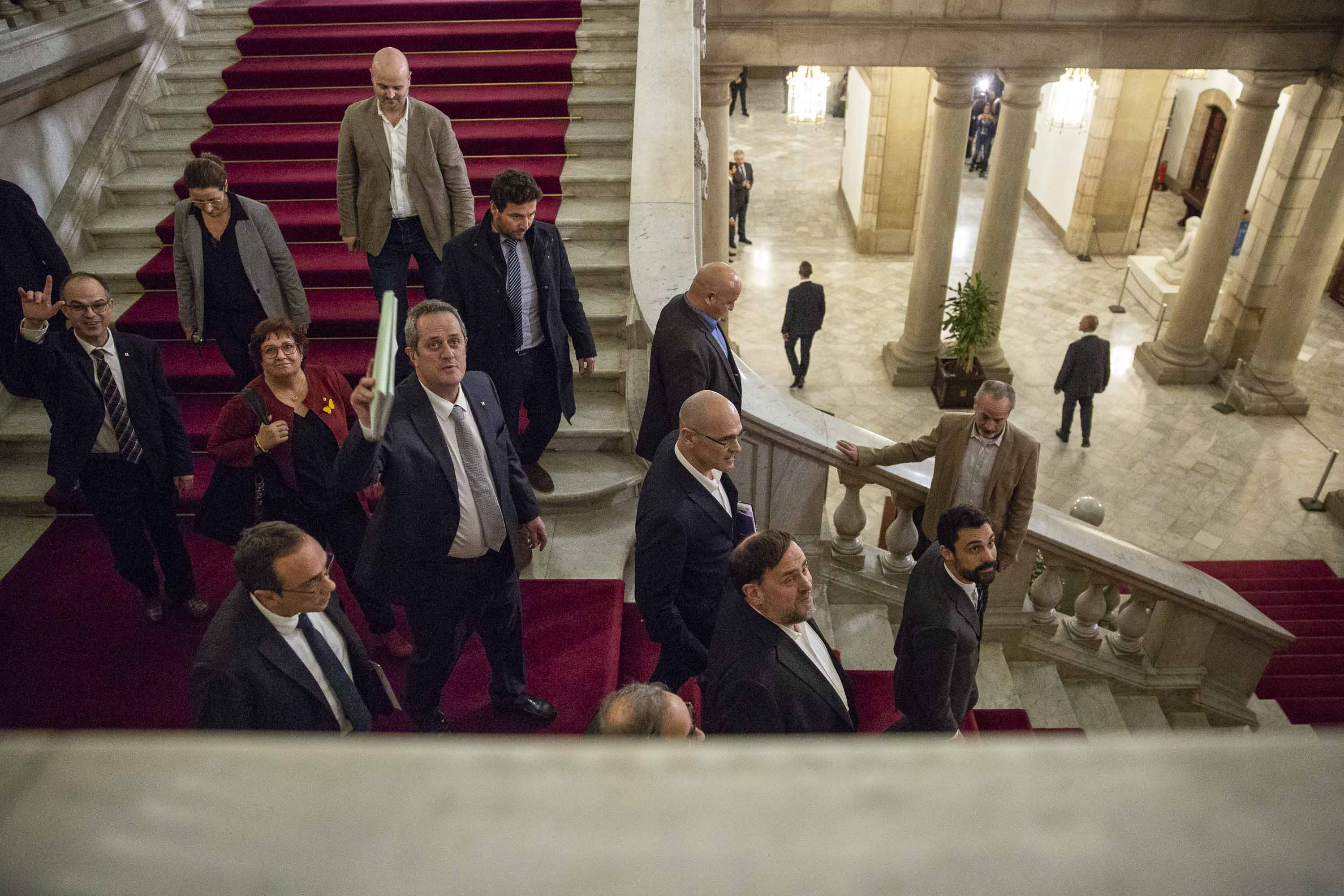The United States government has warned Spain about the deficiencies in Spanish democracy and the violation of some human rights in the country. The annual report, in which the US government analyses the democratic value of various countries, highlights, among other issues, the concern regarding the existence of political prisoners in Catalonia, which it describes as "arbitrarily detained".
The US government bases itself on the UN report of March 8th, which denounced the imprisonment of Catalan activists and politicians for organising a referendum on self-determination. The Spanish government is asked to "fulfil its legal obligations to protect the human rights of minorities, including the Catalan minority, especially as regards freedom of speech, peaceful assembly and association, and participation in public life".
In particular, the US government condemns the "arbitrary and prolonged" detentions of Jordi Sánchez and Jordi Cuixart. In this regard, they recall Amnesty International's May 13th report, which criticised the Spanish Supreme Court's interpretation of sedition as "excessively broad" and warned of the "criminalisation of acts of protest".

Image: Jordi Sánchez and Jordi Cuixart on a Guàrdia Civil car during the protests against the search at the Catalan department of Economy / Sergi Alcázar
Despite this, the report admits that no state has openly labelled the October 1st pro-independence leaders as "political prisoners".
Warning about the rise of hate-speech against Catalans
Also quoting the UN studies, the US government has expressed its concern about another issue: "The rise of hate-speech against Catalans as a minority group on social media and elsewhere, as a result of the October 2019 protests following the sentences passed on 12 Catalan politicians and civil society activists."
The report condemns the fact that in Spain, politicians and others from outside the region were labelled as traitors who had to be dealt with harshly, sometimes using violent language".
Freedom of expression and of the press
Aside from the Catalan issue, the US conclusions go further and highlight, among others, the lack of freedom of the press in some cases and the criminalisation of certain opinions.
"Amnesty International has called on the Spanish government to repeal the legislation criminalising the glorification of terrorism, insulting the monarchy and offending religious sentiments, as they unduly restrict freedom of speech," is recalled in the report.
The US Department of State also includes the complaints of several organisations defending freedom of the press in Spain, in its annual human rights report. For example, it explains that in 2020 "there were multiple reports of verbal attacks by government officials, who targeted several media outlets and journalists".
In this regard, the report recalls that last year, on March 1st, Pedro Sánchez accused the "conservative" media of "stirring up trouble" whenever they lose an election. It also notes that, on the same day, vice-president Pablo Iglesias said that the media critical of the government had “offended the dignity of journalism". Also in March, according to the document, Iglesias threatened to send a journalist to prison for publishing compromising information about his political party (Podemos), especially with regard to its financing. But it does not only denounce attacks on the press by the Spanish government, the US warns of "repeated attacks on the media by Vox".
Corruption, Spain’s problem
US diplomacy points out that corruption "is a problem in the country", with cases that "cross party, regional and municipal boundaries" and a "significant" increase in the number of cases before the courts, which "have continued to prosecute regardless of political pressure".
The annual report by the US Department of State examines the performance of governments around the world as regards human rights, but it does not examine its own government track record. Several organisations, such as Amnesty International, reported an increase in the violations of the rights of minorities and migrants under the Donald Trump administration (2017-2021).
Main image: The political prisoners in the Parliament, where they were testifying before the 155 Commission / Sergi Alcàzar

